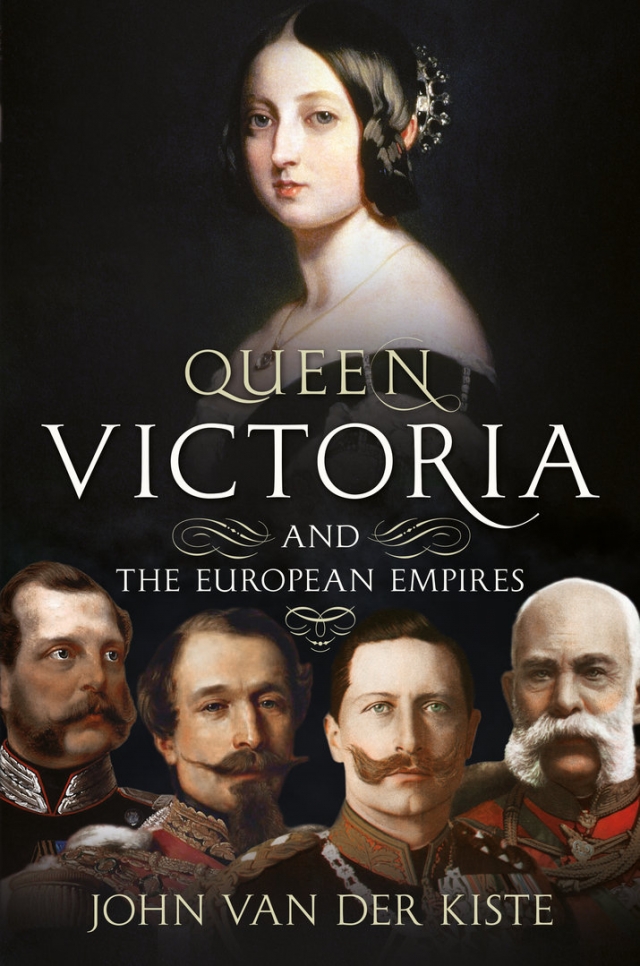Queen Victoria and the European Empires
Book Review

Queen Victoria and the European Empires, John Van Der Kiste, Fonthill, 2016, hardback, £18.99, ISBN 9781781555507
John Van Der Kiste has published over forty books, a high proportion of which relate to individual and collective royal biography, in which he has developed considerable expertise, which is evident in his latest publication, which draws extensively on his acquaintance with the journals and letters of Queen Victoria and a wide range of other primary and secondary sources. The volume under review focuses upon Queen Victoria’s personal and political relationships with the emperors and empresses and kings and queens of France, Germany, Austrian and Russia, many of whom were related to her or her extended family, providing a fascinating portrait of European royalty from the 1830s to the 1900s, some of whom would not survive the Great War. However the Disraelian initiative to elevate Queen Victoria herself to the status of Empress was intended ostensibly to ‘bind India more closely to her mother country’ though as the author observes European family reasons also helped precipitate the move since Victoria’s son-in-law, Crown Prince Frederick William of Prussia, who was married to her eldest daughter Victoria, had become an emperor designate with the proclamation of the German Empire following Germany’s victory over France in the Franco-Prussia War.
Ironically, Victoria notwithstanding her long reign paid a formal state visit to only one European empire, and that was to the one with which she had no family connections, the Second French Empire, which disappeared following Napoleon III’s defeat in the Franco-Prussian War, though she made two family visits to Berlin in 1858 while it was still the pre-imperial capital of the kingdom of Prussia and thirty years later in 1888. She continued, however, to travel throughout Europe at intervals, with her preferred destination in her later years, the Riviera, having abandoned state visits after the death of her husband in 1861.

